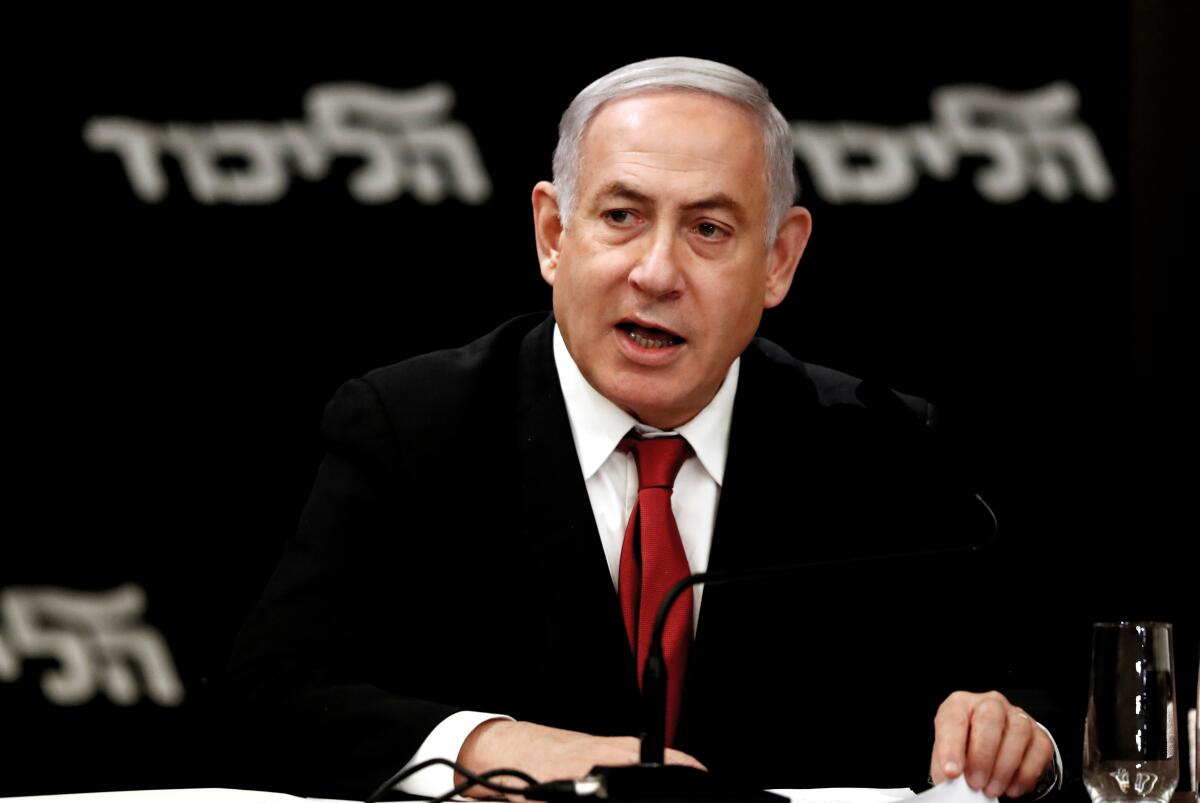Israel in uncharted territory as it heads into a third election in less than a year

- Share via
JERUSALEM — Israel is heading to elections for the third time in less than a year after its parliament, the Knesset, failed to muster a majority of votes necessary to nominate any candidate for prime minister.
Although expected, the outcome on Wednesday, when a deadline for forming a new government expired, caused an earthquake in the Israeli political sphere, which finds itself on uncertain political and constitutional ground.
Prime Minister Benjamin Netanyahu, Israel’s longest-serving leader, who was served with criminal indictments in several cases of corruption last month, will lead Israel as a caretaker premier until the March election.
Israel has been without a regular government for almost a full year.
After losing several ministers in his coalition government, Netanyahu announced early elections in December 2018. He then failed to assemble a new coalition after the April 9 elections, in which he eked out a narrow victory over his principal rival, the former army chief Benny Gantz, a centrist.
Gantz squeezed by Netanyahu, a right winger, in the unprecedented second election, on Sept. 17, but since then, both leaders have been unsuccessful in their attempts to puzzle together a government.
Israel’s constitutional Basic Law on government operations permits a serving prime minister to remain in office if indicted, but Israeli civil law does not allow any indicted individual to be appointed to high office — leaving the country in an uncharted legal desert. Netanyahu is expected to ask parliament for immunity from prosecution.
Ariel Bendor, a professor of constitutional law at the Bar Ilan University School of Law, said in a radio interview that Israel was “developing constitutional law minute by minute now.”
Alluding to the possibility of far-reaching, structural changes, Bendor said: “We always thought our system worked, but if it cannot form a government for this long, however undesirable it is, the system may need revision.”
For now, Israel is poised to tumble into a heated campaign the likes of which it has never seen.
Late Wednesday, with the parliamentary deadline looming, Netanyahu repeated his contention that the criminal charges against him were an “attempted coup d’état.”
More to Read
Sign up for Essential California
The most important California stories and recommendations in your inbox every morning.
You may occasionally receive promotional content from the Los Angeles Times.













